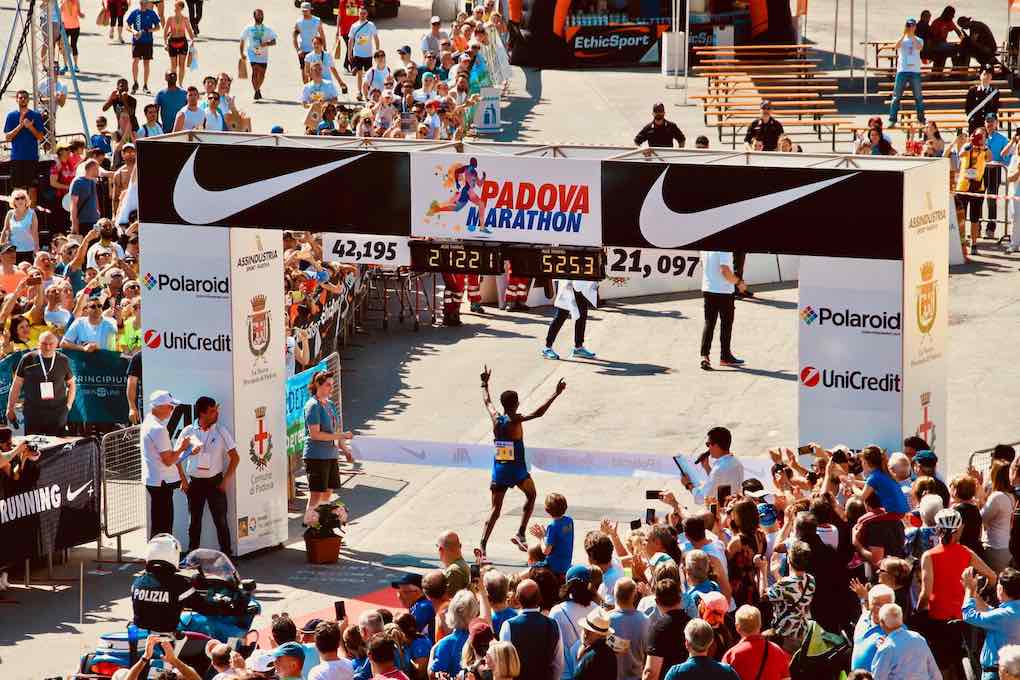Do you struggle with finding the time and motivation to incorporate a consistent running routine into your busy schedule? Are you curious about how long it may take to run a specific distance, such as 7 miles? In today's fast-paced world, balancing personal wellness with other responsibilities can be challenging. In this article, we will explore the factors that may impact the time it takes to run 7 miles, providing valuable insights and tips to help you achieve your fitness goals.
Key Takeaways:
- Running 7 miles can take anywhere from 45 minutes to 2 hours, depending on various factors such as fitness level, terrain, and weather conditions.
- Proper training, rest and recovery, and nutrition and hydration can help improve running time and reduce the risk of injury.
- It is essential to listen to your body, start slow and build up, and maintain proper form when running 7 miles.
How Long Does It Take To Run 7 Miles?
To find out the estimated time it takes to run 7 miles, follow these steps:
- Evaluate your current running pace and endurance level.
- Calculate the average time it takes you to complete 1 mile.
- Multiply the average time per mile by 7 to determine the approximate time to run 7 miles.
The first recorded marathon was during the ancient Olympics in 490 B.C. when Greek soldier Pheidippides ran from the battlefield of Marathon to Athens to declare victory over the Persians. After delivering the news, he collapsed and passed away.
What Factors Affect Running Time?
The time it takes to run 7 miles can vary significantly from person to person. Several factors come into play, such as fitness level, terrain, weather conditions, running pace, and rest and recovery. Let's discuss these factors and how they can affect your running time. Whether you are an experienced runner or just starting, understanding these essential elements can help you improve your performance and reach your running goals.
1. Fitness Level
- Assess fitness levels to determine current capabilities.
- For beginner runners, start with a comfortable pace and gradually increase speed and distance.
- Experienced runners can incorporate speed work and hill training to boost performance and become stronger.
- Advanced runners should focus on refining their running form and increasing endurance to become faster.
In 490 BC, the Battle of Marathon saw the Greek messenger Pheidippides run over 25 miles from Marathon to Athens to deliver news of the victory against the Persians before collapsing and dying. This inspired the creation of the modern marathon race.
2. Terrain and Elevation
- Choose flat terrains: Opt for running on flat surfaces with minimal elevation to maintain a consistent pace and reduce the risk of injury.
- Utilize walk breaks: Incorporate short walking segments during uphill terrains to conserve energy and prevent overuse injuries.
- Avoid overuse injuries: Vary your running routes to minimize repetitive impact on specific muscles and joints and reduce the risk of injury.
When navigating varying terrain and elevation, strategically integrating walk breaks and diversifying running segments can enhance performance while mitigating the risk of injury.
3. Weather Conditions
- Check the weather forecast to plan your run for milder conditions, avoiding extreme heat or cold.
- Stay hydrated during hot or cold weather and protect yourself from the wind.
- Adjust your pace and expectations according to the weather conditions to prevent exhaustion or discomfort.
While training for a marathon, I experienced the impact of weather conditions firsthand. Running in high temperatures led to fatigue, while windy conditions affected my pace. Being mindful of the weather helped me adapt and perform better.
4. Running Pace
- Understand your running pace: Determine your current mile pace by timing a mile run. This sets the baseline for improvement.
- Train for a faster mile: Incorporate interval training to increase speed and improve endurance, aiming for an ideal race pace.
- Maintain a steady pace: During longer runs, focus on a conversational pace to conserve energy and endure the entire distance.
Pro-tip: Consistently training at various paces helps build overall speed and endurance, including maintaining a conversational pace during longer runs.
5. Rest and Recovery
- Include rest days in your training plan to allow your body to recover and adapt to the training load.
- Overuse injuries can arise from inadequate rest and recovery, increasing the risk of injury.
- Proper rest and recovery are crucial for preventing overuse injuries and optimizing performance.
Make sure to incorporate rest and recovery into your training routine to minimize the chances of overuse injuries and improve overall performance.
How To Improve Running Time?
Are you looking to improve your running time? Several factors can contribute to faster and more efficient running, but it all starts with your training. Let's discuss various ways to improve your running time, including increasing training frequency and incorporating interval training. We will also touch upon the importance of proper nutrition and hydration and the role of rest and recovery in optimizing your performance. Let's dive in and see how these strategies can help you reach your running goals.
1. Increase Training Frequency
- Follow structured training plans to increase the frequency of your training runs gradually.
- Consider incorporating marathon training plans for more intensive workouts.
- Find a dedicated training partner to motivate and challenge you during your training runs.
- Include variety in your training runs to improve endurance, speed, and overall performance.
2. Incorporate Interval Training
- Incorporate high-intensity interval training (HIIT) to build speed and endurance.
- Include fartlek training to improve overall running pace and stamina.
- Integrate tempo runs to enhance aerobic capacity and threshold.
- Incorporate speed workouts to develop leg turnover and running economy.
3. Focus On Proper Nutrition and Hydration
- Hydrate: Drink water before, during, and after running to maintain optimal hydration levels.
- Nutrition: Consume a balanced diet of carbohydrates, proteins, and healthy fats to fuel your runs.
- Body Weight: Keep healthy by following a proper nutrition plan and regularly engaging in aerobic exercises to enhance running performance and minimize joint stress.
4. Get Adequate Rest and Recovery
- Rest and Recovery: Allocate 1-2 days of rest per week, and include recovery activities like stretching, foam rolling, and massage.
- Overuse Injuries: Avoid overtraining by gradually increasing mileage and intensity, and listen to your body for signs of fatigue or pain.
- Injury Risk: Address potential injury risks promptly by seeking professional advice and adjusting your training plan as needed.
Once, a friend neglected rest and recovery, leading to overuse injuries. After consulting a physiotherapist and adjusting the training schedule, they recovered and resumed running with a healthier approach.
What Are The Average Running Times For 7 Miles?
Completing a 7-mile run can feel like a significant accomplishment for many runners. But what are the average running times for this distance? There is no simple answer, as numerous factors can impact the time it takes to complete a 7-mile run. Let's discuss the average running times for beginner, intermediate, and advanced runners. Whether you're carrying extra weight or an experienced runner, we'll break down the average times and running paces for a 7-mile run.
1. Beginner Runners
- Gradually increase mileage to prepare the body for 7-mile runs.
- Focus on losing extra weight to enhance endurance and speed for the 7-mile run.
- Consider numerous factors such as fitness level, terrain, and weather conditions when planning the 7-mile run.
2. Intermediate Runners
- Follow a structured training plan to build endurance and speed.
- Focus on maintaining a consistent running pace during the entire 7-mile distance.
- Incorporate interval training to improve overall running speed and stamina.
- Gradually increase the distance covered in each running session to build endurance.
In 1985, two Australian runners, Pat Farmer and Dave Williams, set a new world record for the fastest run around Australia, completing the 14,500-mile journey in 191 days, 10 hours, and 58 minutes.
3. Advanced Runners
- On average, experienced runners typically complete 7 miles at a running pace of 45-60 minutes.
- The running pace is even faster for advanced runners, usually ranging from 6 to 9 minutes per mile.
- Advanced runners focus on consistent training, incorporate speed work, and prioritize recovery and nutrition to achieve and maintain faster running times.
Tips For Running 7 Miles
Running 7 miles may seem like a daunting task, especially for those new to running or those who last ran a while ago. However, with the right approach, it can be a rewarding and achievable goal. Let's discuss some tips to help you complete a 7-mile run. From starting slow and building up to staying hydrated and using proper form, we will cover all the essential elements for a successful and enjoyable long run.
1. Start Slow and Build Up
- Establish a comfortable pace for the first mile to warm up the body.
- Gradually increase your speed and maintain a steady rhythm.
- Monitor your breathing and adjust your pace as needed.
- Finish strong by pushing yourself during the last mile for a satisfying long run.
2. Listen To Your Body
- Pay attention to your body's signals during the run, such as breathing, heart rate, and muscle fatigue.
- Adjust your pace or take breaks if you feel any discomfort to prevent injury.
- Be mindful of your fitness level and avoid pushing beyond your current capabilities.
- Take adequate rest and recovery after the run to allow your body to recuperate and reduce the risk of overuse injuries.
Remember, listening to your body is crucial in balancing pushing your limits and avoiding overexertion.
3. Stay Hydrated and Fueled
- Hydrate: Consume water before, during, and after the run. For longer distances, consider sports drinks for electrolyte replenishment.
- Fuel Up: Prioritize a balanced pre-run meal rich in carbohydrates and moderate in protein. During the run, use easily digestible sources of energy like gels or chews.
Additionally, maintain proper nutrition to support overall health and reduce the risk of cardiovascular disease. Whether running to shed extra pounds or for fitness, staying hydrated and fueled with the right energy source is crucial.
4. Use Proper Running Form
- Check your running pace using a Running Pace Calculator to maintain an optimal rhythm throughout your run.
- Monitor your minutes per mile or minutes per kilometer using the Running Pace Calculator to gauge your speed.
- Focus on keeping a steady and efficient running pace to improve overall performance and reduce the risk of injury.
What is the average time it takes to run 7 miles?
The average time to run 7 miles is around 68 minutes, with an average running pace of 9:43 minutes per mile. However, this can vary depending on age, sex, fitness level, experience, weather, and terrain.
How does my weekly mileage affect my 7-mile run time?
Your weekly mileage plays a significant role in your 7-mile run time. The more you run, the better your endurance and overall fitness will be, which can lead to faster 7-mile times.
What is considered a good time for a 7-mile run?
Most runners consider a good 7-mile time to be anything under 55 minutes or a pace of 7:51 minutes per mile. However, this can vary depending on several factors, such as age, sex, and fitness level.
How does my training routine affect my 7-mile run time?
Your training routine can significantly impact your 7-mile run time. Regular training sessions, including different workouts, can help improve your overall performance and lead to faster 7-mile times.
Is it necessary to run 7 miles frequently for a marathon training program?
Running 7 miles frequently for a marathon training program is unnecessary. While it can be a beneficial addition to your training, it is recommended to incorporate longer runs, around 10 miles, for optimal race performance.
How many calories can I expect to burn while running 7 miles?
On average, running 7 miles will burn around 700 calories. However, this number can vary depending on weight, pace, terrain, and weather conditions.



